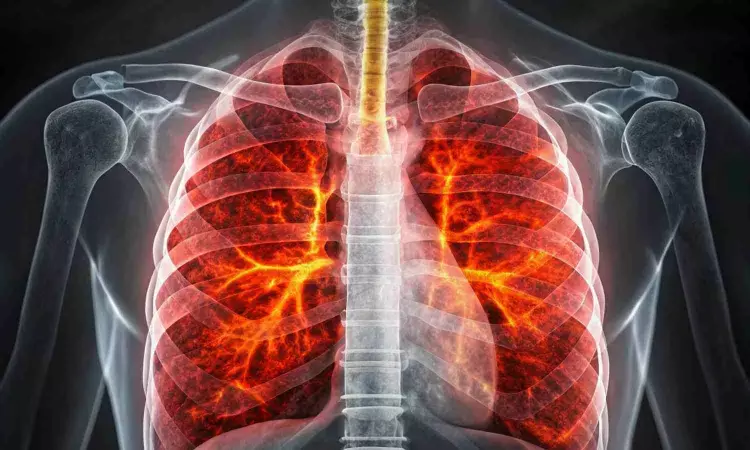- Home
- Medical news & Guidelines
- Anesthesiology
- Cardiology and CTVS
- Critical Care
- Dentistry
- Dermatology
- Diabetes and Endocrinology
- ENT
- Gastroenterology
- Medicine
- Nephrology
- Neurology
- Obstretics-Gynaecology
- Oncology
- Ophthalmology
- Orthopaedics
- Pediatrics-Neonatology
- Psychiatry
- Pulmonology
- Radiology
- Surgery
- Urology
- Laboratory Medicine
- Diet
- Nursing
- Paramedical
- Physiotherapy
- Health news
- Fact Check
- Bone Health Fact Check
- Brain Health Fact Check
- Cancer Related Fact Check
- Child Care Fact Check
- Dental and oral health fact check
- Diabetes and metabolic health fact check
- Diet and Nutrition Fact Check
- Eye and ENT Care Fact Check
- Fitness fact check
- Gut health fact check
- Heart health fact check
- Kidney health fact check
- Medical education fact check
- Men's health fact check
- Respiratory fact check
- Skin and hair care fact check
- Vaccine and Immunization fact check
- Women's health fact check
- AYUSH
- State News
- Andaman and Nicobar Islands
- Andhra Pradesh
- Arunachal Pradesh
- Assam
- Bihar
- Chandigarh
- Chattisgarh
- Dadra and Nagar Haveli
- Daman and Diu
- Delhi
- Goa
- Gujarat
- Haryana
- Himachal Pradesh
- Jammu & Kashmir
- Jharkhand
- Karnataka
- Kerala
- Ladakh
- Lakshadweep
- Madhya Pradesh
- Maharashtra
- Manipur
- Meghalaya
- Mizoram
- Nagaland
- Odisha
- Puducherry
- Punjab
- Rajasthan
- Sikkim
- Tamil Nadu
- Telangana
- Tripura
- Uttar Pradesh
- Uttrakhand
- West Bengal
- Medical Education
- Industry
Dexpramipexole Improves Lung Function in Eosinophilic Asthma, reveals research

The phase 3 EXHALE-4 study demonstrated that dexpramipexole, an oral small molecule therapy, significantly improved pre-bronchodilator FEV1 compared with placebo when used as an add-on treatment in patients with eosinophilic asthma. These findings highlight dexpramipexole's potential as a novel therapeutic option for improving lung function in this patient population.
“More than half of people with asthma have the eosinophilic subtype, yet there remains a profound need for easily administered oral treatment options that can help address their symptoms, which are often severe,” said Ian Pavord, MA, DM, Professor of Respiratory Medicine at the University of Oxford, UK and a member of Areteia’s Scientific Advisory Board.
“Initial results from the Phase III EXHALE-4 study are extremely promising, particularly the statistically significant improvement in lung function and the reduction in eosinophils observed with dexpramipexole versus placebo, which show the potential for dexpramipexole to become the first oral treatment approved for eosinophilic asthma.”
“We are pleased to report positive topline results for the EXHALE-4 Phase III study, which demonstrate dexpramipexole’s ability to address the unmet needs of people with eosinophilic asthma by improving their lung function. Dexpramipexole has the potential to be the first oral treatment for this indication,” said Jorge Bartolome, President and Chief Executive Officer of Areteia. “We look forward to presenting the full EXHALE-4 results at an upcoming medical meeting as we also advance the EXHALE-2 and EXHALE-3 studies and work to transform the patient journey in eosinophilic asthma.”
Dexpramipexole significantly improved lung function averaged over Weeks 20 and 24, as measured by the change from baseline in pre-bronchodilator forced expiratory volume (pre-BD FEV1), in the dexpramipexole 150 mg twice daily (BID) group compared with placebo. Significant improvements in lung function were observed as early as Week 4.
Dexpramipexole 150 mg BID and 75mg BID significantly reduced blood AEC averaged over Weeks 20 and 24, as measured by the change from baseline in geometric mean AEC values compared with placebo.
In this study, dexpramipexole was well tolerated, with a safety profile similar to previous studies.
Full study results will be presented at an upcoming medical meeting. Dexpramipexole is an investigational drug and is not licensed for use in eosinophilic asthma.
Dr Kamal Kant Kohli-MBBS, DTCD- a chest specialist with more than 30 years of practice and a flair for writing clinical articles, Dr Kamal Kant Kohli joined Medical Dialogues as a Chief Editor of Medical News. Besides writing articles, as an editor, he proofreads and verifies all the medical content published on Medical Dialogues including those coming from journals, studies,medical conferences,guidelines etc. Email: drkohli@medicaldialogues.in. Contact no. 011-43720751


